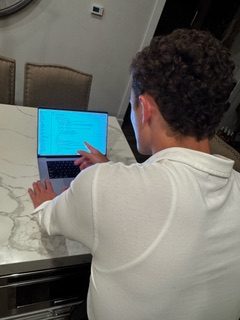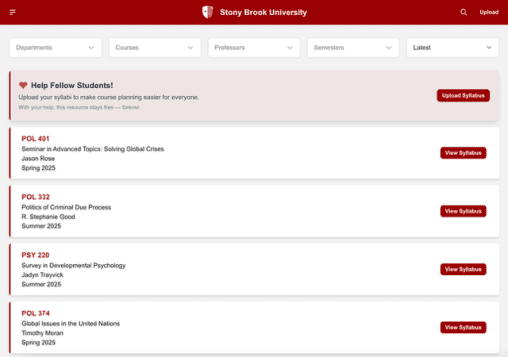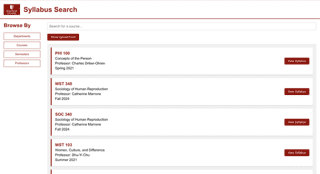By Sabrina Artusa
In August 2024, Stony Brook University senior Samuel Katsaros was on his third night with little to no sleep, teaching himself how to code so he could develop a syllabus website for his peers.
Weeks before, the university took down their site that provided students with access to the syllabi and class evaluations. This resource allowed them to learn more about a course before committing to enrolling.
In his last semester before graduating, Katsaros had wanted to explore his “burning interest” in computer science; unfortunately, the class was full. When he tried to access SBU’s syllabus website, Classie Syllabus and Course Evaluation Explorer, to learn about a Greek class he was interested in taking, he couldn’t. He took it as a sign.
“Maybe this is just a chance for a student to do it,” he said. “This was a signal to me. You know what? Maybe I was the person to do it.”
Katsaros, who majored in business management with a specialization in finance, immediately began learning to code, simultaneously exploring his interest in coding and working to satisfy an unmet need in the student body. The entire process – learning to code and developing a website – took three nights.
The first week in September when syllabus.website launched, over 1,000 users flocked to the site. In the month, over 12,000 people had used it. “Course planning is a very anxious time for students and we don’t want them waiting even an hour,” he said. Currently, the website provides over 1,000 course syllabi.
“It allows students to go into course selection with actual sight. You aren’t blind going into this.” Katsaros said.
Using Reddit to receive user feedback, Katsaros began cleaning up the user experience and accessibility, sorting the courses by alphabetical order, fixing error messages and adding a search function in filters. “Students are very funny and very, very picky with their resources,” he said.
He also learned just how valuable the website is to students. According to a Reddit post, the website was crucially allowed an international student access to previous syllabi, which was necessary to validate their diploma in their home country.
Currently, Katsaros relies on other students to upload their own syllabi, making it “student run.” Most students who use the website also contribute their syllabi – it is very sticky,” Katsaros said, as it has a high rate of returning users. Now, with the website almost nine months old, Katsaros is interested in getting sponsors and expanding to other universities. He is also working on streamlining how the syllabi gets uploaded and is exploring other ways of getting the materials.
Maintaining a website while being a full-time student came with its own set of challenges. Katsaros said the first days of operating the site were filled with anxiety. The university had taken down their own syllabus website, and Katsaros wasn’t confident administrators would embrace a student building another.
He was anonymous for a time, but when the school newspaper, The Statesman, wrote a piece on his site, he was quickly asked to meet with administrators.
“I thought this is my last semester and I am going to get expelled.” Katsaros said. The meeting went well and Katsaros was not expelled; in fact, he was commended for creating the website.
Initially, he operated the website on his home Wi-Fi, which wasn’t the most stable. Further, the small Raspberry Pi computer was not scalable, meaning it would not easily adapt to his increasing number of users. “I was afraid of tightening one spare letter and the whole site coming down and the students being without this resource,” he said. So, he moved it to a different platform that could accommodate the changes he wanted to make.
Katsaros wants his website to continue growing and to stay accessible. The free site requires work to maintain, so he is hoping to expand with the help of sponsors. “ I will never ever take this thing down,” he promised.










